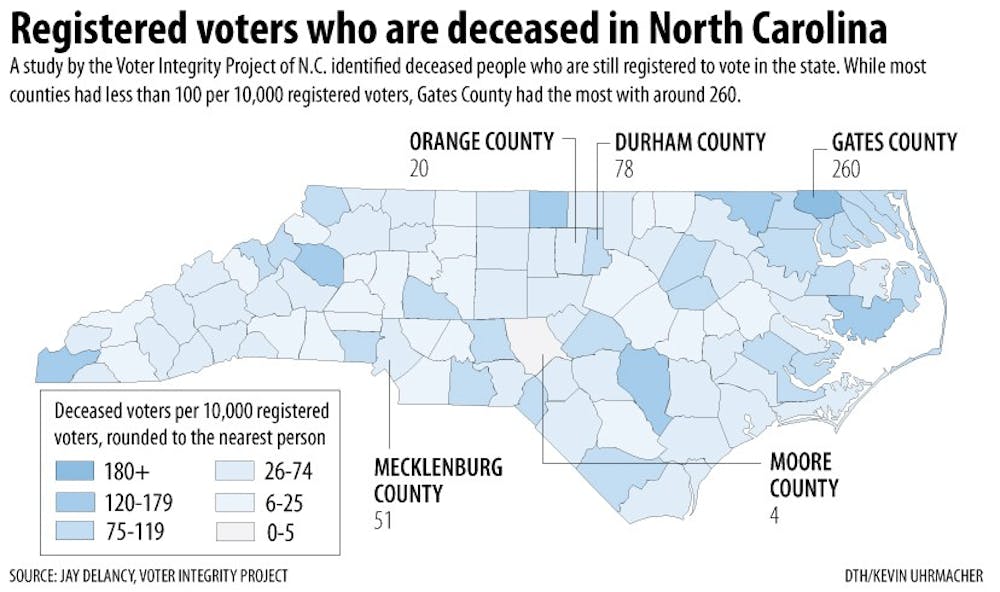A recent audit by a state elections watchdog group suggests there might have been some unlikely voters hitting the polls in previous elections — ones who are no longer living.
The Voter Integrity Project of North Carolina, based in Raleigh, recently discovered the names of almost 30,000 deceased individuals in the state who are still registered to vote. It delivered these names to the N.C. Board of Elections on Aug. 30.
Jay DeLancy, executive director of the project, said volunteers at the organization created their own data-matching software, which they used to compare names from the Board of Elections’ list of registered voters to the names of dead individuals from the N.C. Division of Public Health.
“We wanted to see, ‘Are there dead voters out there?’ and we were stunned to see how many there are,” he said.
The names compared were from Jan. 1, 2002 to March 31, 2012.
Any registrations that did not match up exactly were manually checked. These include instances of the name “Liz” not matching “Elizabeth,” or street names changing over time, DeLancy said.
As of Aug. 4, N.C.’s voter roll listed about 6.3 million registered voters. Project volunteers checked it against a list of almost 750,000 deceased citizens.
Every month, the Division of Public Health forwards a list of individuals who died to the Board of Elections, which divides them up by county.
Counties are responsible for removing those individuals from their voter rolls, but some slip through the cracks, DeLancy said.




